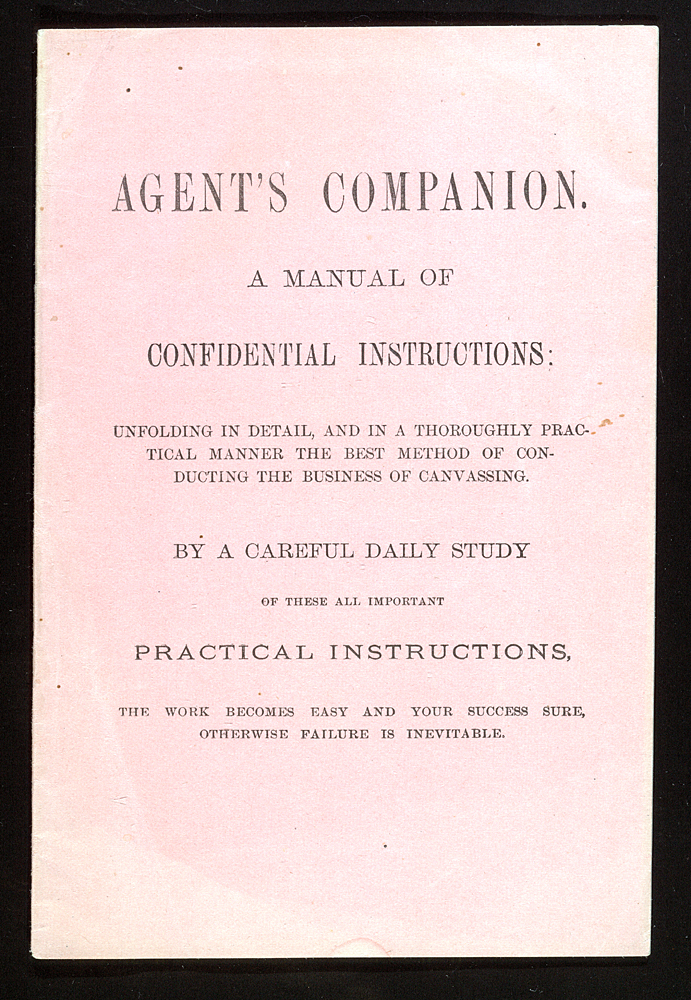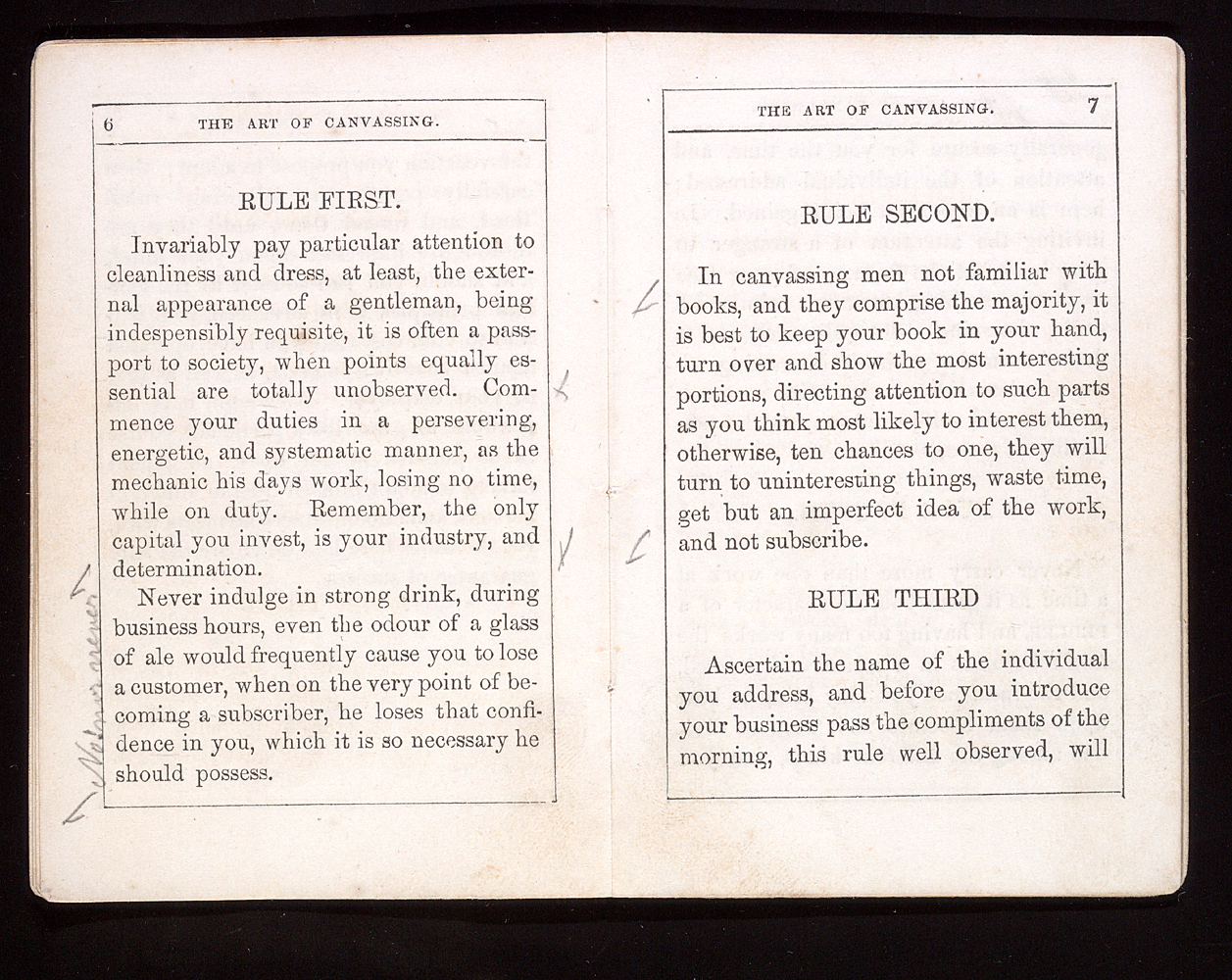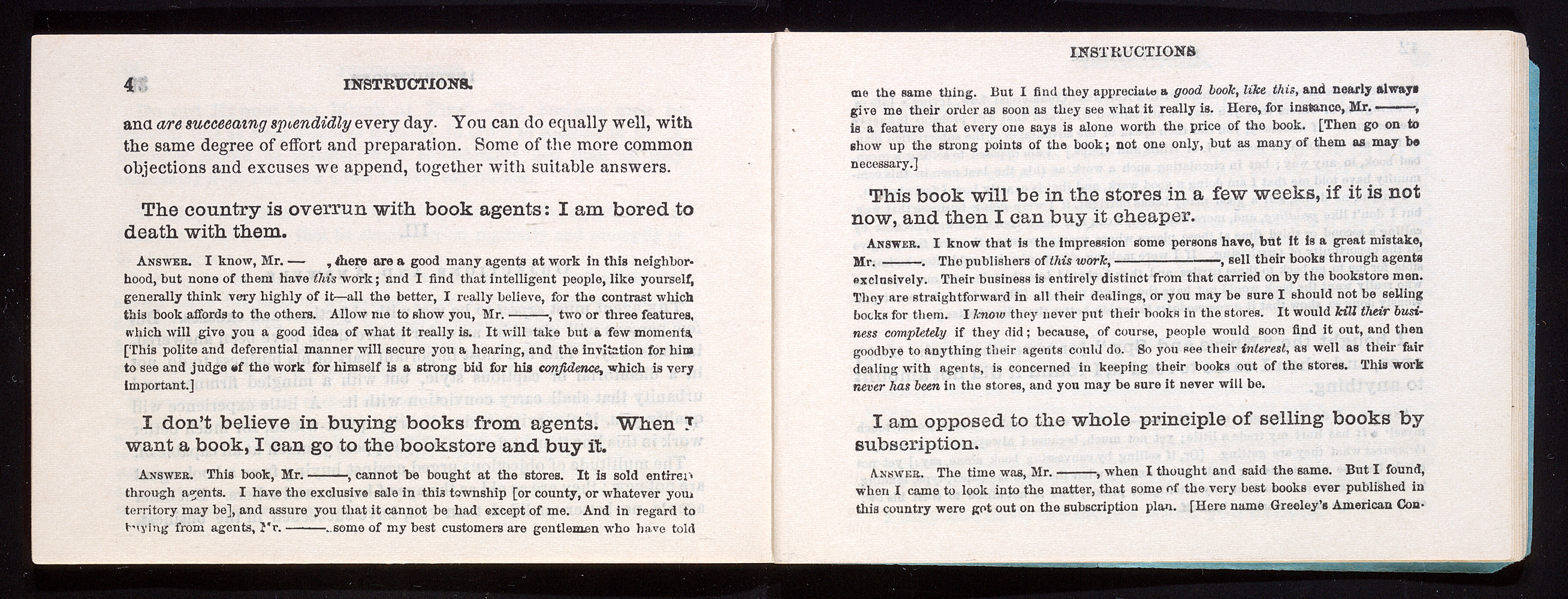Fig. 1: Pamphlets intended to educate book agents in the manner and process of selling books through canvassing speak, for instance, of the virtues of subscription books. "Almost invariably . . . works of solid information," they circulate "principally among that class who seldom or never enter a bookstore, who live remote from cities, and who . . . would be destitute entirely of the wisdom which their pages impart." They describe techniques for obtaining subscriptions, telling the agent to "first make . . . the acquaintance of a few of the leading men and induce . . . them to subscribe, which he can easily do, if his book is worthy, and he has the right social and persuasive qualities." The agent must "paint vividly upon the imagination an impression that the book is of a deeply interesting character, and filled with useful information." Standard salesmanship, this pamphlet advises "a pleasant manner of approaching men," never losing one's temper, and perseverance and system, "going at it as . . . [at] a day's work, losing no time." Agents learn that "[h]undreds of persons will subscribe when books are presented to them at home, who never would think of purchasing at a regular bookstore." The virtues of subscription over direct sales, "because most persons are more ready to engage to pay the money at a future time for an article than to purchase it now," lead to advice to "rely principally on men of moderate means and small libraries . . . and especially upon mechanics and the farming population." Women--"the ladies"--"will often buy when the men will not, and indeed, it is often the case, that a . . . lady takes more interest in books than her husband."
Fig. 2: This early book of advice consists essentially of ten rules that successful book agents should follow. First and foremost is to pay close attention to one's external appearance and manner. The author entered the "profession" in 1851 "more as a means of mental and bodily exercise than as a lucrative pursuit." He claims to have been so successful that he feels obliged to share his insights with other prospective book agents. Stoops went on to compile and publish Gems of Poetry: Containing a Collection of Popular Parlor Ballads, and the Business Cards of the Leading Hotels and Mercantile Firms in Philadelphia, Pennsylvania, a single work which clearly joins together business and pleasure.
Fig. 3: This little pamphlet provides the harried book agent with specific speeches to use in answering a variety of objections.
Which exhibit?
Page: Featured item
Short name for this entry
General "How to Sell
Order on exhibit page
1
Turn off the details link on the exhibit page
On
Exhibit sub-tab


